Are you ready to unlock your full potential and be rewarded for your hard work? Our employee incentive program offers exciting opportunities for recognition and rewards, designed to motivate and inspire our team. Imagine achieving your goals while also enjoying fantastic perks that acknowledge your dedication. Join us as we explore the details of this program and discover how you can benefitâread on to find out more!
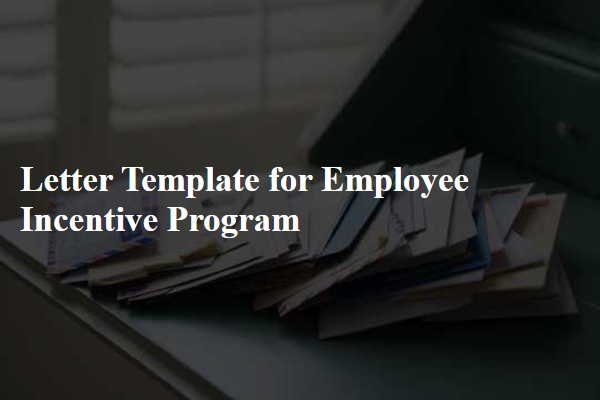
Purpose and objectives
The purpose of the employee incentive program is to enhance motivation and productivity among team members, driving overall company performance. Objectives include recognizing exceptional contributions through monetary rewards or non-monetary benefits, fostering a culture of appreciation and engagement, and encouraging teamwork and collaboration. By implementing performance metrics such as quarterly sales targets or project completion rates, the program aims to align individual goals with organizational objectives. Additionally, the program seeks to retain top talent, reduce turnover rates, and create a positive work environment that attracts prospective employees.
Eligibility criteria
The Employee Incentive Program aims to recognize outstanding performance and enhance employee motivation within the company. Eligibility criteria for participation include full-time employment status, a minimum tenure of six months, and a performance rating of at least 4 out of 5 in the most recent annual review conducted on June 1st, 2023. Additionally, employees must not have any disciplinary actions recorded in their personnel file during the eligibility period. Participation is exclusive to departments actively contributing to key performance indicators (KPIs) outlined in the corporate strategy, ensuring that accomplishments align with the organization's goals. The program seeks to reward employees who demonstrate exemplary commitment and productivity in their respective roles.
Reward structure
An employee incentive program is designed to boost morale and enhance productivity within organizations such as Fortune 500 companies or small businesses. This program typically includes a structured reward system that recognizes outstanding performance across various metrics, such as sales achievements (20% increase in quarterly sales), customer satisfaction scores (minimum of 90% satisfaction), or innovation initiatives (patents filed or implemented ideas). Rewards may consist of financial bonuses (up to $5,000), recognition events (annual gala for top performers), or professional development opportunities (funding for certifications). The goal is to foster a culture of excellence and commitment among employees to help drive organizational success. Tracking methods can include performance dashboards or appraisal systems, ensuring transparency and fairness in the reward distribution process.
Application process
An employee incentive program can significantly motivate staff, fostering a productive workplace environment. Key elements include clear eligibility criteria, typically requiring a minimum tenure of six months with the company. The application process often entails submitting a detailed proposal outlining specific achievements or contributions, accompanied by supporting documentation, such as performance metrics or project summaries. Review timelines usually span two to four weeks, during which a committee evaluates applications based on predetermined performance benchmarks. Successful applicants may receive rewards such as monetary bonuses, extra paid time off, or company-sponsored events, enhancing job satisfaction and loyalty among employees.
Evaluation and selection criteria
Employee incentive programs require a clear evaluation and selection criteria to effectively recognize and reward outstanding performance. Key performance indicators (KPIs) such as sales growth percentages (targeting a 15% increase quarter over quarter), customer satisfaction scores (minimum 90% rating on surveys), and project completion rates (at least 95% of deadlines met) provide measurable benchmarks. Additionally, team collaboration effectiveness can be assessed through 360-degree feedback, where colleagues and supervisors evaluate teamwork and communication. Furthermore, innovative contributions to process improvements, such as streamlining operations or saving costs, should be documented with quantifiable results (e.g., reducing expenses by 10%). The selection will culminate in quarterly reviews to discuss achievements and set future goals, ensuring alignment with company objectives and fostering a culture of excellence.

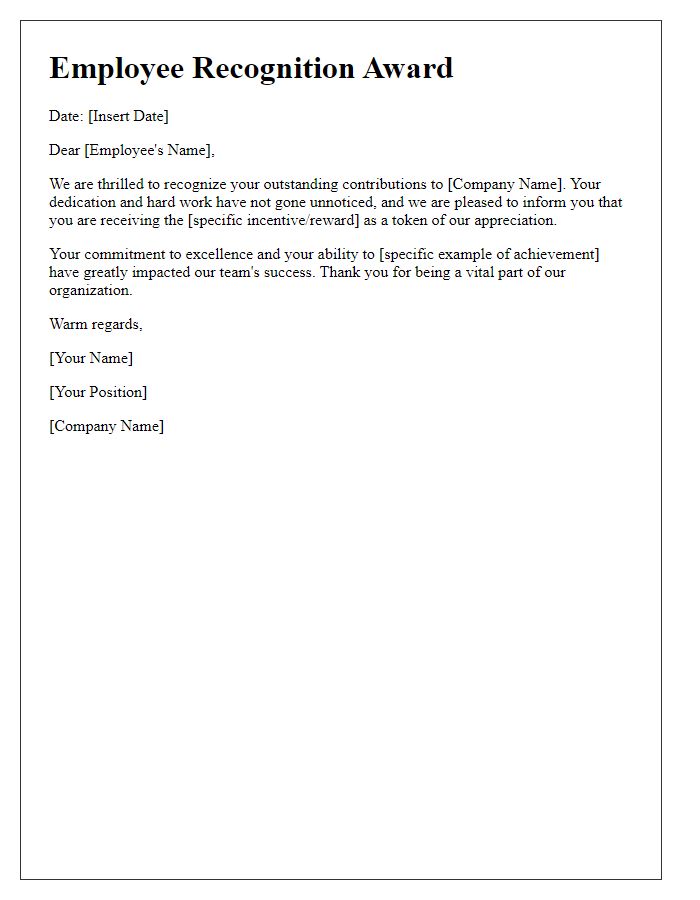
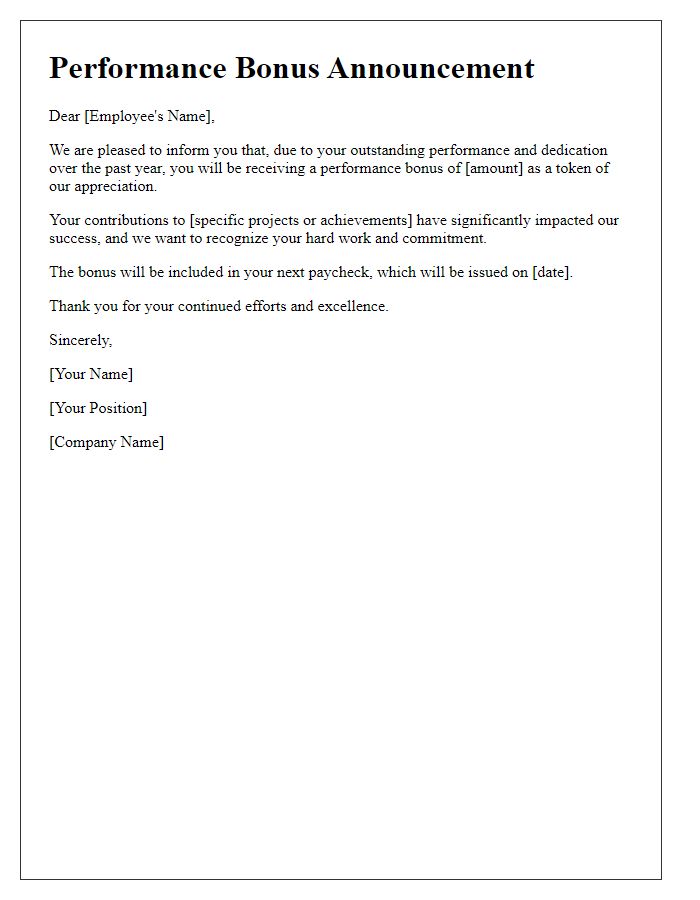
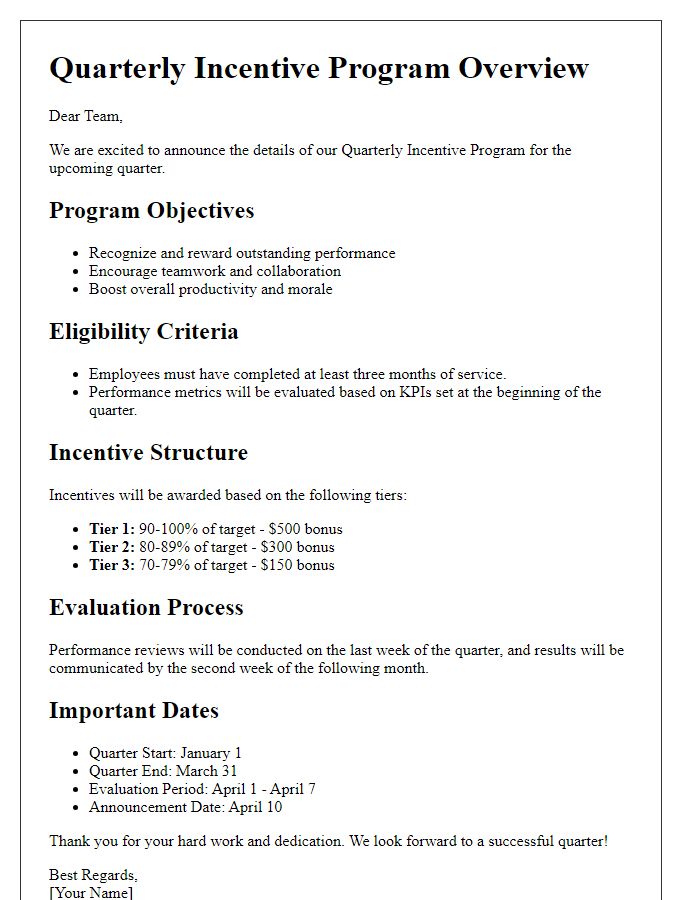
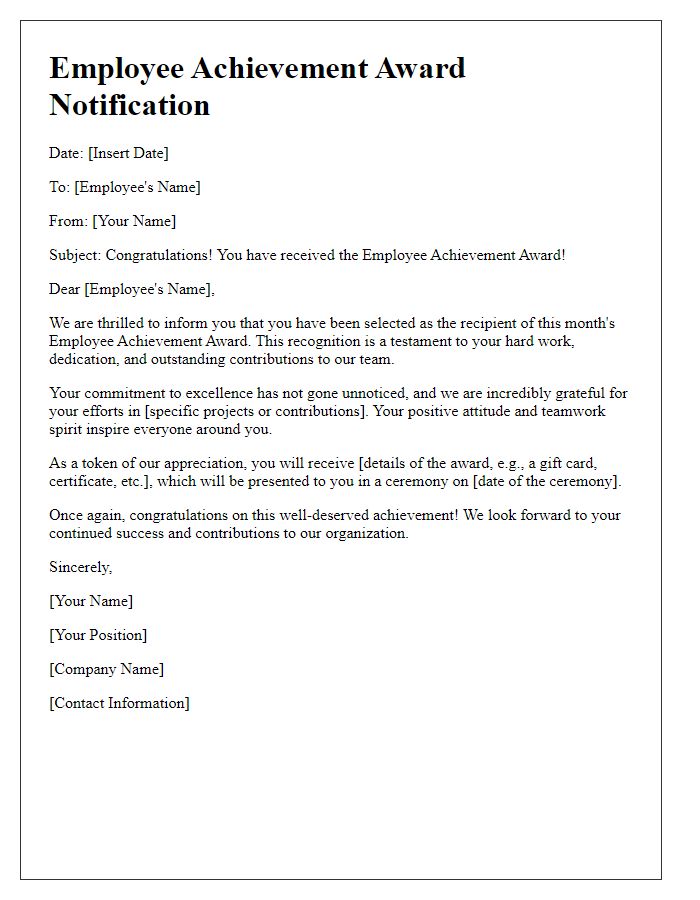
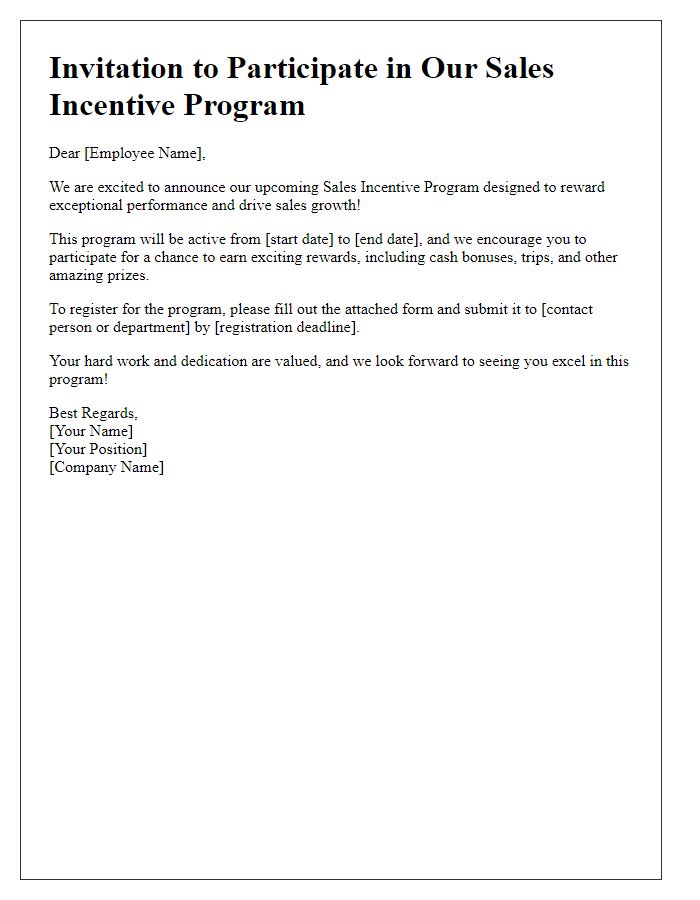
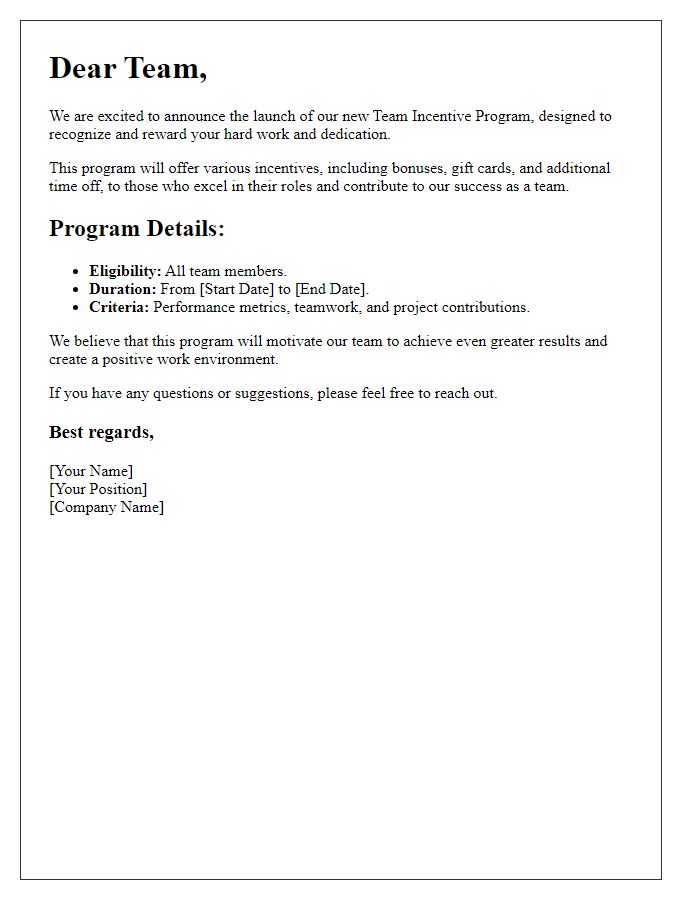
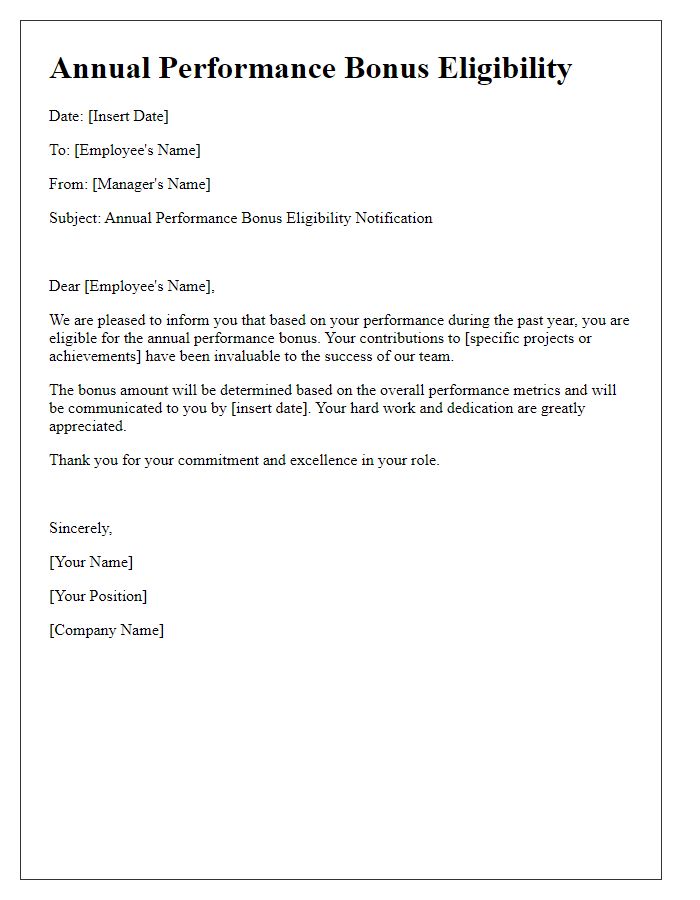
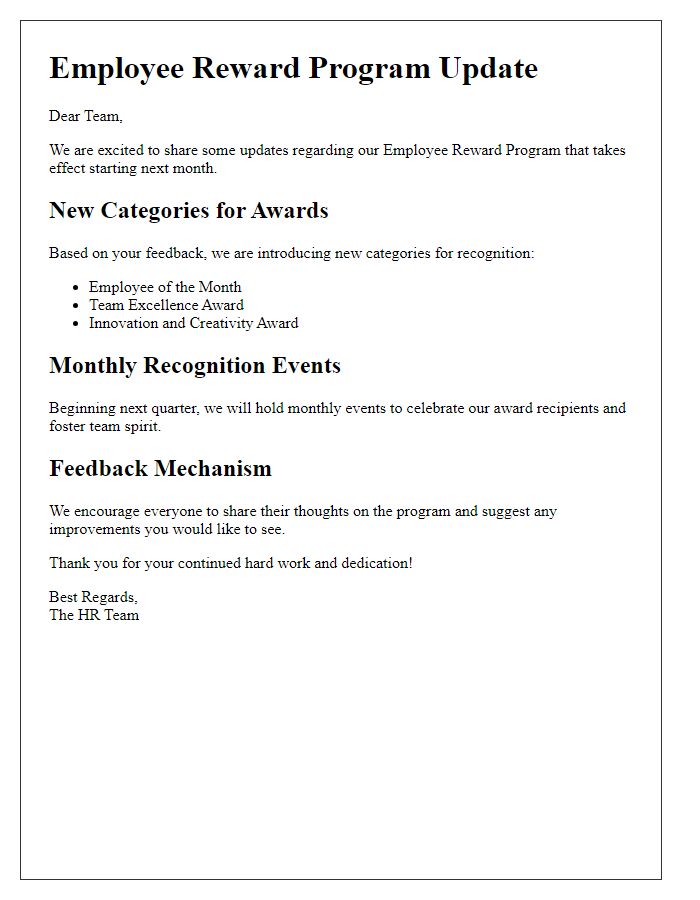
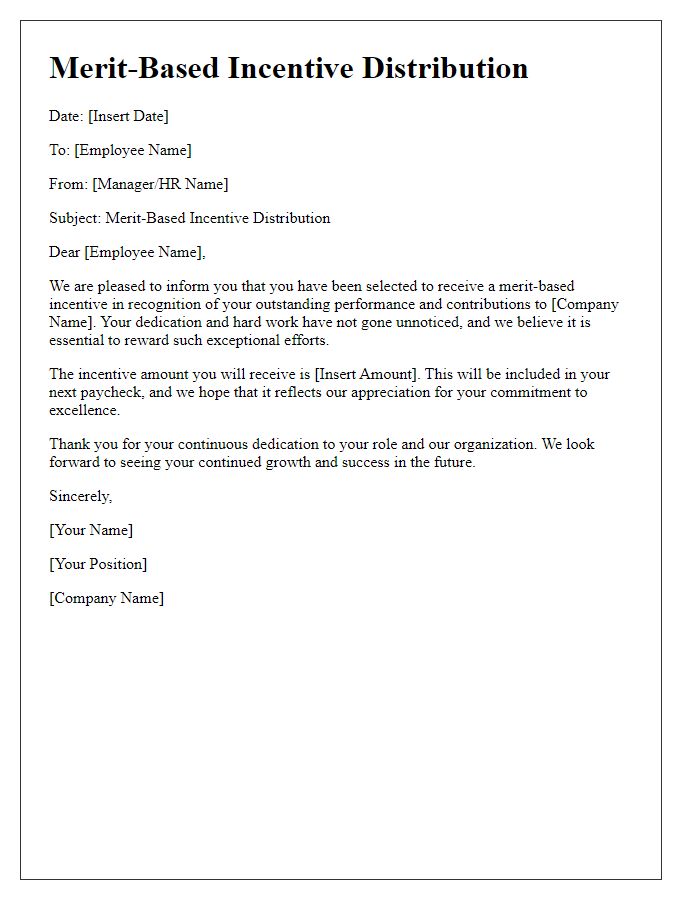
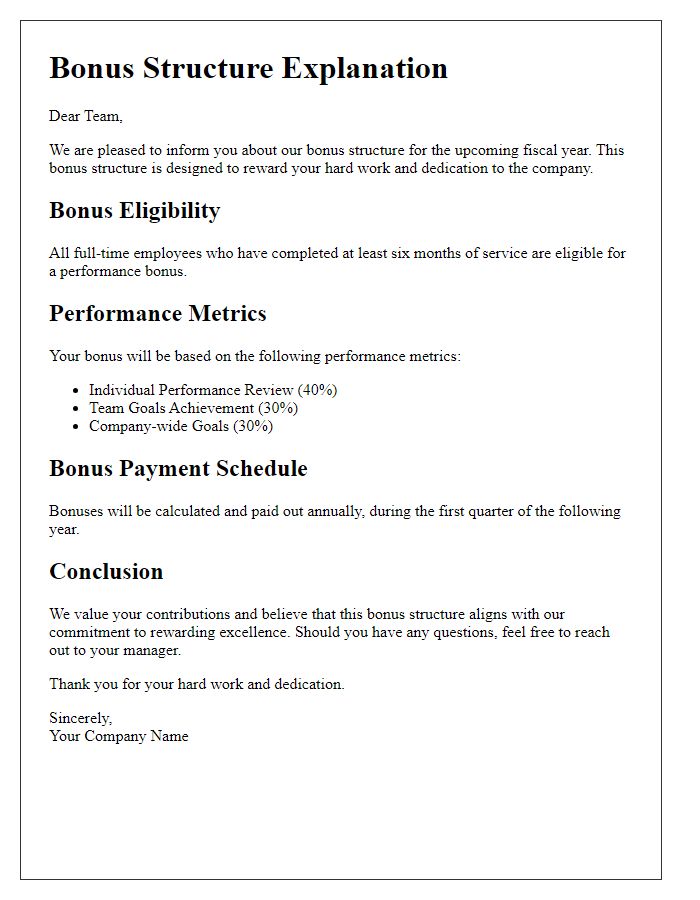


Comments